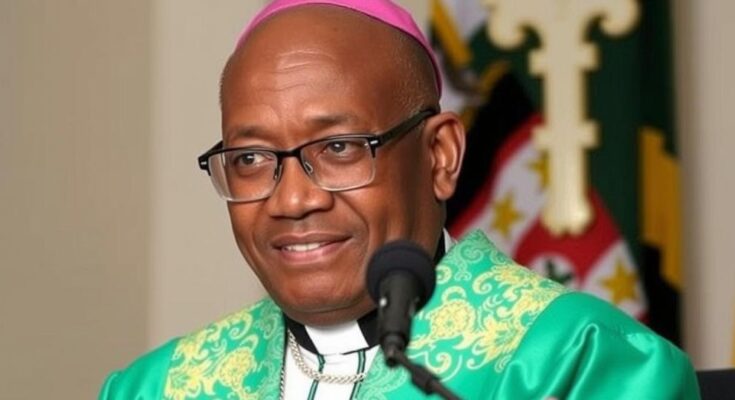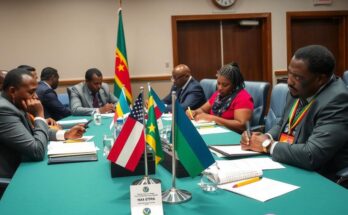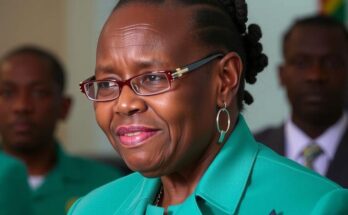The Episcopal Conference of the Democratic Republic of Congo has responded to Deputy Prime Minister Jean-Pierre Bemba’s accusations of the Catholic Church inciting hatred against the government. Bemba suggested mismanagement of diocesan funds, a claim the church vehemently disputes, demanding evidence and asserting its commitment to societal projects. This issue coincides with contentious constitutional reforms that could enable President Tshisekedi to seek a third term, a move supported by Bemba’s political party.
In response to allegations made by Deputy Prime Minister Jean-Pierre Bemba regarding the Catholic Church in the Democratic Republic of Congo, the Episcopal Conference has issued a statement expressing regret over the comments made during a December 4 radio interview. Bemba claimed that certain political leaders, including those of religious affiliation, were inciting hatred against the state. He further insinuated that dioceses were mismanaging funds intended for charitable work. Bishop Donatien Nshole, the conference secretary, demanded evidence for these claims and reiterated the church’s commitment to social and economic collaboration with the government, while indicating that only a fraction of promised funds had been delivered thus far. This controversy is set against the backdrop of constitutional reforms that may permit President Félix-Antoine Tshisekedi to pursue a third term, an initiative supported by Bemba’s party, the Movement for the Liberation of Congo (MLC).
The Democratic Republic of Congo has recently faced tension between its government and the Catholic Church, particularly as political leaders have criticized the church’s role in societal issues. Furthermore, allegations regarding the mismanagement of funds have emerged, alongside debates over proposed constitutional changes that could extend President Tshisekedi’s tenure. The interplay of religious influence and political governance in the Congo remains complex, particularly as the church historically advocates for social justice and economic development initiatives.
The ongoing discourse highlights a significant rift between the Democratic Republic of Congo’s leadership and the Catholic Church regarding political engagement and financial transparency. The Episcopal Conference’s response advocates for accountability and clarity amidst rising tensions, especially as constitutional propositions poised to alter the political landscape provoke diverse reactions from various stakeholders. It remains essential for both entities to navigate these challenges collaboratively for the stability and prosperity of the Congolese people.
Original Source: www.fides.org




